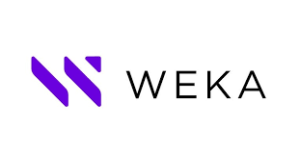During the Google I/O 2024 developer conference, Google announced a significant update: the integration of its smallest AI model, Gemini Nano, into the Chrome desktop browser starting with version 126.
This integration aims to empower developers by allowing them to use the on-device model to enhance their own AI features. For example, Google plans to incorporate this capability to improve tools like the “help me write” feature in Gmail’s Workspace Lab.
Technical Innovations for Enhanced Performance
Google attributes the feasibility of running these AI models efficiently on various hardware to its recent advancements in WebGPU and WebAssembly (WASM) support within Chrome.
Jon Dahlke, Google’s Director of Product Management for Chrome, disclosed in a pre-announcement briefing that Google is in talks with other browser developers to potentially enable similar features in their platforms.
“We have initiated conversations with other browsers and are launching an early preview program for developers,” Dahlke mentioned in the announcement. “We believe the integration of WebGPU, WASM, and Gemini into Chrome prepares the web for AI.”
While it may be unlikely for Chrome’s competitors to rely solely on Google’s AI models, it is practical to allow browsers and developers the flexibility to choose their preferred models. Google intends to use Gemini for its own applications, but its small size offers developers the freedom to select the best model for their specific needs.
Introducing High-Level APIs for Advanced Web Functions
Google’s approach involves enabling a range of high-level APIs within Chrome to handle tasks such as translation, captioning, and transcription using its Gemini models.
“To implement this feature, we have fine-tuned our most efficient version of Gemini and optimized Chrome,” Dahlke explained during the developer keynote at I/O. “Our goal is to provide access to Gemini models in Chrome, reaching billions of users without the complexities of prompt engineering, fine-tuning, capacity, and cost. Developers only need to utilize a few high-level APIs – translate, caption, transcribe. This marks a significant evolution for the web, and we are committed to getting it right.”
In addition, Google is using the built-in Gemini Nano model to add new features to the Chrome DevTools Console. This enhancement allows the dev tools to explain errors and offer debugging solutions directly within the console.
See also: Web Search Filter Introduced By Google For Accessing Text Links As AI Advances


















